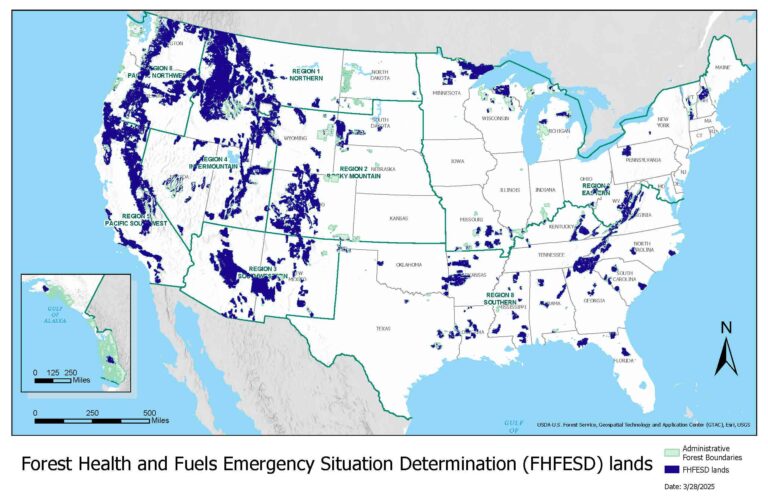A review of the value to separate the Riverside County Coroner’s Office
from the Sheriff’s Department concluded that the change would not
address the concerns and issues the public raised last fall and would
add to the county’s cost. The board of supervisors unanimously concurred
and approved the report.
The report determined, “If the duties of the Sheriff, Coroner, and
Public Authority are separated, there will be a negative impact on the
delivery of services and the cost for those services will increase.”
In lieu of the organizational change, the Executive Office’s (EO) staff,
which conducted the evaluation, offered two recommendations.
The first was for the Sheriff’s Department to negotiate agreements with
neighboring counties to conduct independent autopsies for all deaths in
Riverside County involving the use of force by the Sheriff’s Department
or that occur in the county’s jails.
Secondly, it urged the EO to work with the Sheriff’s Department to
review the potential to create a Family Liaison Program. Its intent
would be more effective help to families or individuals who have lost
loved one’s while in the custody of the Sheriff’s Department, especially
during the investigation of this death.
At the beginning of the report, a summary of the findings was presented:
“As a result of an extensive evaluation, the EO has reached the
conclusion that the negative impacts of separating the Coroner’s Bureau
and/or Public Administrator from the Sheriff’s Department significantly
outweigh the perceived benefit and would not be in the best interests of
the community.”
The sheriff/coroner has the duty under Government Code section 27491 to
conduct thorough and impartial investigations of in-custody and
officer-involved deaths.
Since their combination, the Sheriff’s Department has attempted to avoid
either a conflict of interest or the appearance of one. To achieve this,
the Sheriff’s Department has established the following policies and
steps when an internal investigation is needed.
When there is a report of a law enforcement related death, the
Sheriff-Coroner’s Internal Affairs Detail is immediately notified to
investigate department personnel.
The District Attorney’s Office (DAO) receives notification of all
custodial-related deaths and independently determines whether to conduct
a parallel criminal investigation. The DAO is immediately notified of
all officer-involved and/or custodial deaths. An experienced homicide
deputy district attorney and investigator can conduct an independent
investigation. The case may ultimately be evaluated for potential
criminal liability.
According to the EO’s report, “Since 2020, the Sheriff’s Department does
not investigate themselves when an officer or deputy’s use of force
results in death or injury.” Procedures are in place for a cooperative
task force or a Force Investigation Detail.
A year ago, the department created the Central Corrections Investigation
unit in order to establish and to maintain a standard response to
in-custody deaths, to conduct consistent and thorough reports, and to
ensure cooperation with the DAO.
Also, the Coroner’s Office conducts its own investigation of all
in-custody and law enforcement related deaths. The study team found “no
evidence, indication, or recollection that a Sheriff/Coroner has ever
attempted to change a forensic pathologist’s recommended cause or manner
of death.”
Since the team did not believe that a separation of the sheriff and
coroner was needed, they did recommend that the sheriff contract with
neighboring counties to perform autopsies of in-custody deaths. Both San
Bernardino and San Diego counties were willing to enter into an
agreement. Orange County declined because of concerns over its staffing
and caseloads.
Public comments
While 10 people, including former Supervisor Bob Buster, commented on
the report and its recommendations, the opposition was not strong and
described the review as a positive step.
Mothers of two inmates who died while in custody spoke and were very
strongly in favor of the separation.
Katherine Nigro, mother of Michael Vasquez, who died in custody May 26,
2022, said, “You’d think your loved one would be safe in facilities like
that. … I disagree with no separation.”
And Lisa Matus, whose son Richard died Aug. 11, 2022, said, “After
reviewing the study, I believe there is a great need and importance for
a third party outside of Riverside County to conduct the study due to a
conflict of interest.” Her family waited more than a year for the
autopsy results to be made public.
Buster was the first public speaker. He urged the board to approve the
separation and advocated appointing and funding a separate medical
examiner.
He recommended talking a bold action rather than the “timidity,
passivity, and inaction, that still holds true today. Taking action is
self-correcting, while holding back makes the situation worse.”
Luis Nolasco, senior policy advocate and organizer for the ACLU of
Southern California, believed separation would be a better policy and
additional oversight of the Sheriff’s Department would be beneficial for
public perception and county management.
He felt the study was incomplete. “The study did not include a
cost-benefit analysis. It was not thorough enough,” he stated to the
Town Crier. He added that his group, the Sheriff’s Accountability
Coalition, wants to seek a means to offer that piece of analysis.
“It may take some time to complete, but it is important for making a
fair decision,” he said. “The county should not make a decision on an
incomplete report.”
Nolasco suggested that possibly either the RAND Corporation or
California Forward, a nonprofit analytic group, might be willing to do
this analysis.
Before the vote, Undersheriff Don Sharp asked to speak to the board. He
stressed that the Sheriff’s Department has been improving ever since
Sheriff Chad Bianco was elected.
“I’ve been in this business for 35 years. I’ve worked for many
sheriffs,” he stated. “Sheriff Bianco is more transparent than anybody
I’ve ever worked with. We’re engaging with every agency in the county.”
In agreement, Chair Chuck Washington added, that the Department “… could
do more to outwardly demonstrate what we all know you’re doing.”
Board discussion
As the supervisors discussed the proposal, all agreed with the
recommendations presented, but expressed a need for more follow through.
“There is no easy solution here,” Supervisor Kevin Jeffries said as he
began his comments and concluded, “Our Executive Office did a very
thorough job … These are valid recommendations. I’m not completely on
board that what the Executive Office is recommending is the best path;
but not sure I know a better path.”
He did recommend the Sheriff’s Department provide an annual report on
these circumstances and his colleagues agreed to add that to the motion.
Supervisor V. Manuel Perez, who co-sponsored the request for the report,
also supported the recommendations. He then acknowledged that it was not
100%, “we’re not there yet … it’s not complete but it’s a start …
looking forward to future efforts.”
Background
Since 1999, the Riverside County Coroner’s Office has been part of the
Sheriff’s Office. California is just one of three states that permits
counties to combine these two offices. In California, only 10 counties
have separated the two offices.
The coroner investigates and reports on all violent, sudden or unusual
deaths of persons within the county as established by California law.
But the question is not new to the county. The 2017-2018 Riverside
County Grand Jury also looked at this issue, and recommended that as an
alternative to separation, the sheriff re-establish “an agreement with
acceptable terms, with an adjacent county, to perform autopsies of
in-custody deaths.”
From 1999 to 2005, Riverside County had an agreement with Orange County
to do this, but after its expiration in 2005, it was not renewed.
In an Oct. 31 letter to the board, a number of community groups, led by
So Cal’s ACLU, urged the board to study the potential separation of the
two functions.
“Studies support this separation; it is proven that Coroners operating
under Sheriff’s Departments are more likely to underreport
officer-involved deaths,” noted the ACLU.





